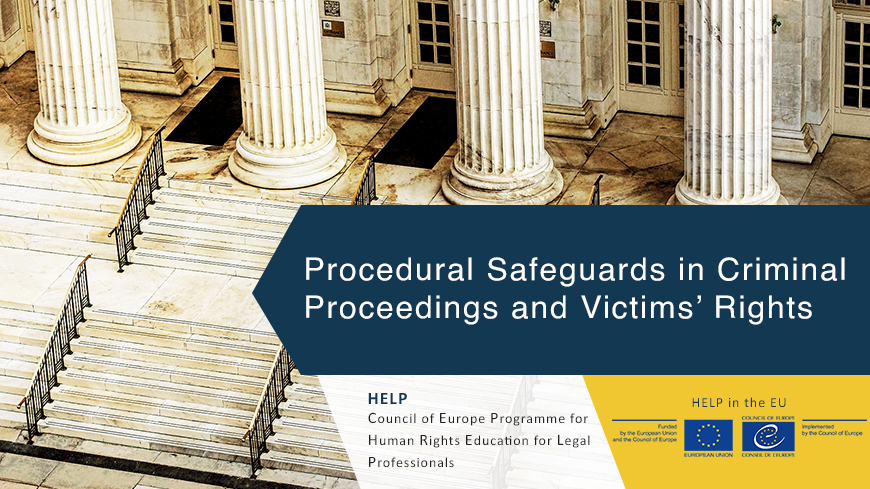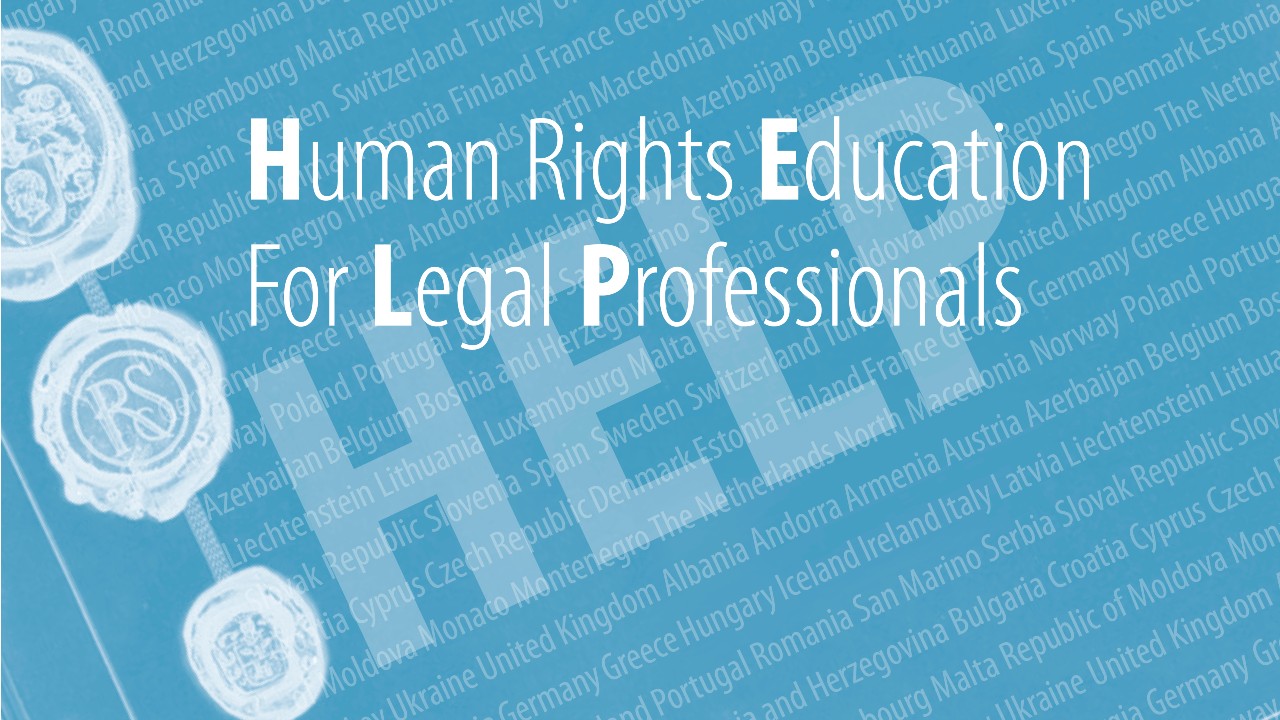The course was developed by the Council of Europe HELP Programme thanks to EU support, being financed by the EU-Council of Europe “HELP in the EU” Project.
The HELP online course is based on the HELP methodology and combines both the fundamental procedural rights of accused and suspected persons in criminal proceedings (focusing on EU Directive topics, notably the presumption of innocence) and the rights of victims of crime (emphasis on access to justice).
States’ obligations are not limited to the duty to prosecute crime. Fighting and deterring crime as well as providing access to justice and adequate protection from further harm to victims of crime are also part of the states’ duties vis-à-vis its citizens.
The EU Charter confirms the rights enshrined in the European Convention on Human Rights, mentioning the right to a fair and public hearing by an independent tribunal; the right to be advised and represented or and the right to legal aid. The case law of the European Court of Human Rights shows that violations of defence rights (Articles 5 and 6 of the European Convention on Human Rights) do occur. This, despite the EU Directives on interpretation and translation (2010), on the right to information in criminal proceedings (2012), and on minimum standards on the right of access to a lawyer in criminal proceedings and to communicate upon arrest (2013). The EU Directives adopted throughout 2016 on which legal professionals need to be trained - and aimed to guarantee fair trial rights in the EU - are on the presumption of innocence and the right to be present at trial (2016), on special safeguards for children suspected and accused in criminal proceedings (2016), and on the provision of legal aid for citizens suspected or accused of a criminal offence and for those subject to a European arrest warrant (October 2016).
The European Convention on Human Rights and EU Charter on Fundamental Rights lay out a number of rights that pertain to victims. To exercise their rights, proper victim support is needed, backed by adequate infrastructure and funding. In this context, legal professionals should be responsive to the individual needs of the victims and be particularly aware of certain categories of particularly vulnerable victims, such as children, victims of sexual violence or victims of terrorism. The EU Directive establishing minimum standards on the rights, support and protection of victims of crime was adopted on 2012. The EU Member States were under an obligation to implement these provisions into their national laws by 16 November 2015 (EU Directive 2012/29/EU on establishing minimum standards on the rights, support and protection of victims of crime. EU, 2012). How well States respect victims tests the quality of EU legal systems. On the other hand, EU Member States must ensure that the fundamental procedural rights of accused and suspected persons are respected.
The course is developed in an interactive way and includes various practical exercises. It consists of 6 modules:
Module 1 - Introduction
- Legal Framework and Council of Europe-EU relationship
- Key concepts
Module 2 – General Aspects of a Fair Trial
- Legal framework
- Institutional guarantees
- Procedural guarantees
- Fairness (Administration of Evidence; Adversarial Proceedings; Equality of Arms; Reasoning)
- Public Hearing
Module 3 - Specific Rights/Procedural Safeguards I – The Presumption of Innocence
- Legal basis
- What does it cover?
- Unbiased Approached to the Accused
- Burden of Proof
- Public References to Guilt
- Presentation of the Suspect or Accused
- Remedies against breach
Module 4 - Specific Rights/Procedural Safeguards II
- Legal Basis
- Specific Rights
- Right to Information
- Right to Remain Silent and Not to Incriminate Oneself
- Right of Access to a Lawyer
- Right to Legal Aid
- Right to Interpretation and Translation
Module 5 - Specific Rights/Procedural Safeguards III
- Specific rights
- Right to Examine Witnesses
- Right to be present at Trial
- Right to Appeal
- Right to an Effective Remedy
- Protection in the European Arrest warrant (EAW) Proceedings
Module 6 – Victims’ Rights
- Key concepts
- Context for victims’ rights in Europe
- Victims’ needs
- Victims’ rights in the Council of Europe framework and in EU law
- Right to Respectful Treatment
- Right to Protection
- Right to Support
- Right of Access to Justice
- Right to Restoration
The course is available in English and will soon be translated in other languages.
HELP course on Procedural safeguards in criminal proceedings and victim's rights





